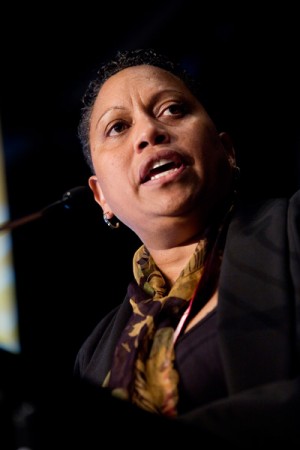
17 March 2021.
The Sax Institute’s peer-reviewed journal Public Health Research & Practice has published an important new paper authored by Indigenous leaders about institutional racism in our health system. Deep-seated resistance to addressing the problem is thwarting progress towards improving the health and wellbeing of Aboriginal and Torres Strait Islander Australians, they say.
The authors of the Perspective write that this institutional racism leads to a dismissal of the Indigenous knowledges, worldviews and cultural practices which could close the gap in life expectancy if they were incorporated into Indigenous healthcare provision.
“Our paper gives voice to Indigenous communities who have consistently said that racism is a critical issue in the provision of healthcare,” says lead author Dr Carmen Parter, Senior Research Fellow at the Poche Centre for Indigenous Health at the University of Sydney.

“When an Aboriginal or Torres Strait Islander person accesses a healthcare service, there is always a level of mistrust and fear. A lot of people forget that our health system was one of the institutions that enabled the taking of Aboriginal children. Those stories still resonate through our communities.”
The paper’s authors say racism in healthcare impacts not only on the social and emotional wellbeing of Indigenous people, but also on health outcomes. They add that it is critical that healthcare provision to Aboriginal and Torres Strait Islander peoples incorporates Indigenous worldviews, which can be very different to those of the Western medical establishment.
“Indigenous worldviews take into consideration not just treatment of the physical body but also spiritual, emotional, social and cultural dimensions such as connection to country and Indigenous identity. It’s very different to how the Western world works,” says Dr Parter.
When Indigenous ways of being, knowing and doing are respected in healthcare, outcomes can dramatically improve, Dr Parter notes. She has previously written about the case of Katherine Hospital, which once had Australia’s worst record for discharge against medical advice, which transformed itself into one of the best hospitals for Indigenous health by listening to its Aboriginal patients, allowing them to speak in their own language through interpreters, adapting care plans to Aboriginal notions of kinship and providing access to bush medicine and traditional healers.
“Privileging Indigenous knowledges, cultures and voices must be front and centre in developing, designing and implementing policies and programs,” the authors write.
In addition to Dr Parter, the paper’s authors include Professor Tom Calma AO, Boe Rambaldini, Dr Josephine Gwynn and Dr John Skinner, all of the Poche Centre; Donna Murray, CEO of Indigenous Allied Health Australia; Janine Mohamed, CEO of the Lowitja Institute; Associate Professor Donna Hartz of the Molly Wardaguga Research Centre at Charles Darwin University; and Dr Shawn Wilson of the Gnibi College of Indigenous Australian Peoples at Southern Cross University.
View the latest issue of Public Health Research & Practice.
Public Health Research & Practice is an open-access, peer-reviewed, Medline-listed quarterly online journal published by the Sax Institute. Subscribe for free.
